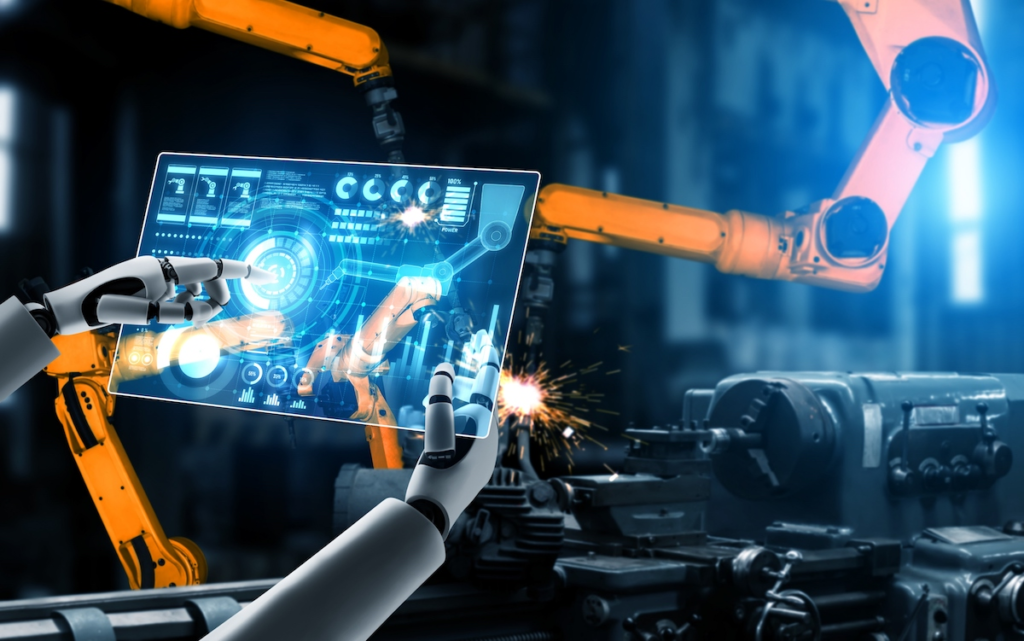Artificial Intelligence (AI) is transforming our world at an unprecedented pace. As we look ahead, it’s clear that AI will continue to revolutionize the way we live, work, and interact. But what do humans envision for the future of AI? Here’s a look at the potential advancements and their impact on our lives.
1. AI in Everyday Life 🏠
In the future, AI will seamlessly integrate into everyday life, making tasks more efficient and improving the quality of life. Imagine smart homes where AI systems anticipate your needs: adjusting lighting, temperature, and even grocery orders based on your preferences.
- Personal Assistants: AI-driven virtual assistants will become even more advanced, managing everything from personal schedules to health monitoring.
- Smart Cities: AI will optimize urban infrastructure, improving traffic flow, energy efficiency, and waste management to create more sustainable and livable cities.
2. AI and Healthcare Revolution 🏥

AI’s impact on healthcare will be transformative. From diagnosing diseases faster than ever before to assisting in personalized treatments, AI will be at the forefront of improving health outcomes.
- Precision Medicine: AI will analyze genetic data to create personalized treatment plans tailored to each individual’s unique genetic makeup.
- Early Diagnosis: AI-powered tools will help detect diseases, like cancer, at their earliest stages, potentially saving lives through quicker intervention.
3. Autonomous Transportation 🚗

The future of AI will likely involve widespread use of autonomous vehicles. Self-driving cars, trucks, and even drones will change the way we travel and transport goods.
- Reduced Traffic: AI systems will optimize traffic patterns, making roads safer and reducing congestion.
- Environmental Impact: Autonomous vehicles could be more energy-efficient, contributing to a decrease in overall carbon emissions.
4. AI in Education 📚
AI has the potential to revolutionize education by providing personalized learning experiences for students of all ages. AI-driven platforms could adapt to individual learning styles, pace, and strengths, offering a more customized approach to education.
- Tutoring Systems: AI-powered tutors will help students master subjects by providing real-time feedback and targeted lessons.
- Global Learning: AI could bridge language barriers, offering real-time translation and making education more accessible worldwide.
5. AI and Employment: Job Transformation 💼
While there’s concern about AI replacing jobs, many experts believe that it will lead to the creation of new roles and opportunities. AI will automate repetitive tasks, allowing humans to focus on more creative and strategic aspects of work.
- Collaborative AI: Instead of replacing humans, AI will become a partner, working alongside individuals to enhance productivity and innovation.
- New Careers: New industries and job categories will emerge in AI development, ethics, and regulation, creating a future workforce that is highly skilled and tech-savvy.
6. AI Ethics and Governance ⚖️
As AI continues to evolve, the conversation around ethics and governance will be critical. Humans will need to address questions related to AI’s impact on privacy, bias, accountability, and safety.
- AI Regulation: Governments and organizations will establish frameworks to ensure that AI is used ethically and responsibly.
- Bias in AI: Ensuring that AI systems are free from bias will be crucial to creating fair and equitable technologies for all.
7. AI-Driven Creativity 🎨
AI will play a significant role in creative fields, from art and music to design and filmmaking. AI-generated content is already making waves, but in the future, humans and AI will collaborate more closely to create groundbreaking works of art.
- Art Creation: AI could assist in designing innovative pieces of art, creating music, or even writing novels, pushing the boundaries of creativity.
- Virtual Reality (VR) and Augmented Reality (AR): AI will enhance VR and AR experiences, allowing users to immerse themselves in fully interactive worlds with limitless possibilities.
8. AI in Environmental Sustainability 🌍
AI has the potential to play a major role in tackling environmental challenges. By optimizing resource usage, predicting climate changes, and developing sustainable technologies, AI can help address some of the world’s most pressing issues.
- Energy Efficiency: AI can be used to monitor and manage energy consumption in homes, industries, and cities, reducing waste and promoting sustainability.
- Climate Change Solutions: AI-driven models will predict environmental changes and suggest effective ways to mitigate climate risks.
Popular Questions About the Future of AI 🤔
- Will AI replace human jobs?
- While AI will automate certain tasks, it will also create new job opportunities and enhance human capabilities, especially in creative and strategic roles.
- How will AI impact healthcare?
- AI will revolutionize healthcare by enabling faster diagnoses, personalized treatments, and better patient care.
- Can AI improve education?
- Yes, AI can provide personalized learning experiences, adapt to students’ needs, and bridge language barriers to make education more accessible.
- How will AI affect our privacy?
- AI will raise concerns about privacy, but it will also push for the development of regulations to protect personal data and ensure ethical use of AI technologies.
- What are the risks of AI in society?
- AI can introduce risks like job displacement, privacy concerns, and bias in decision-making. However, with proper regulation and oversight, these risks can be minimized.
- How can AI help the environment?
- AI can optimize energy use, predict environmental changes, and help create sustainable technologies to combat climate change.
- Will AI create a utopia or dystopia?
- The future of AI depends on how society chooses to develop and regulate it. Responsible use can lead to a utopian society, while neglecting ethical concerns could lead to a dystopia.
As AI continues to develop, humans will see an ever-evolving landscape where the lines between technology and daily life become increasingly blurred. It’s an exciting future, but one that will require careful planning, ethical considerations, and a collaborative effort to ensure AI benefits everyone.
For more updates on technology and AI, visit Zennet!

